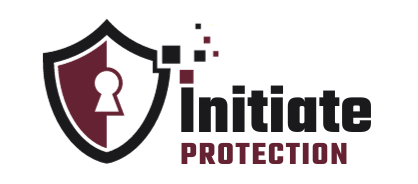Protecting your computer from harmful viruses and malware is essential in today’s digital landscape. With cybercrime on the rise and sensitive information at risk, it’s important to understand how antivirus software works and why it’s crucial for your online safety. Don’t let hackers and viruses harm your valuable data – let us show you how to stay protected.
What Is Antivirus Software?
Antivirus software is an essential tool for safeguarding your computer against malicious software and online threats. Its main function is to scan files and programs and identify and eliminate viruses, worms, Trojans, and other harmful software. This is achieved by comparing the code of files to a database of known malware signatures. Moreover, it continuously monitors your computer in real-time, preventing infections and blocking suspicious activities.
When selecting antivirus software, important considerations include its effectiveness, impact on system performance, ease of use, and additional features such as firewall and phishing protection. Popular choices for antivirus software include Norton, McAfee, and Avast. Keep your computer secure and running smoothly with the right antivirus software.
How Does Antivirus Software Work?
With the constant threat of cyber attacks and malware, antivirus software has become an essential tool for protecting our devices and personal information. But have you ever wondered how exactly it works? In this section, we’ll take a deep dive into the inner workings of antivirus software. From scanning for known malware to using behavioral analysis, we’ll explore the various techniques and features that make antivirus software effective. By the end, you’ll have a better understanding of why antivirus software is crucial in today’s digital world.
1. Scanning for Known Malware
In the world of antivirus software, one crucial step is scanning for known malware. This process involves several key steps:
- Updating Virus Definitions: Antivirus software regularly updates its database of known malware to detect and combat new threats.
- Scanning Files and Folders: The software scans files and folders on the computer, checking for any matches with known malware signatures.
- Quarantine and Removal: If a match is found, the software isolates the infected files in quarantine and offers options to remove or repair them.
- Scheduled Scans: Antivirus software can be scheduled to perform regular automated scans to ensure ongoing protection.
Fact: Did you know that antivirus software is capable of detecting and blocking millions of new malware samples every day?
2. Behavioral Analysis
Behavioral analysis is a crucial component of antivirus software that plays a vital role in detecting and preventing unknown threats. Here are the steps involved in conducting behavioral analysis:
- Monitoring: The antivirus software constantly monitors the behavior of applications and processes on your device.
- Anomaly detection: It compares the observed behavior against a baseline of normal behavior to identify any deviations.
- Pattern recognition: It searches for patterns that may indicate malicious activities, such as rapid file modifications or unauthorized access attempts.
- Heuristic analysis: The software utilizes advanced algorithms to analyze the behavior and characteristics of files and processes to determine if they pose a potential threat.
- Identification and prevention: If any suspicious behavior is detected, the antivirus software takes immediate action to block or quarantine the file or process.
Through behavioral analysis, antivirus software can proactively defend against new and emerging threats, providing an additional layer of protection for your device and data.
3. Real-Time Protection
Real-time protection is a crucial feature of antivirus software, ensuring continuous monitoring and immediate response to threats. Here are the steps involved in real-time protection:
- Continuous Monitoring: Antivirus software scans files, programs, and data in real-time to detect any suspicious activity.
- Malware Detection: It identifies and blocks malware, viruses, and other malicious threats before they can infiltrate your system.
- Web Protection: It monitors your web browsing activities, blocking access to malicious websites and preventing downloads of infected files.
- Email Protection: It scans incoming and outgoing emails for potential malware or phishing attempts.
- Automatic Updates: The software regularly updates its virus definitions and security features to keep up with the evolving threats.
Pro-tip: To maximize real-time protection, ensure your antivirus software is always up to date and scheduled scans are performed regularly.
4. Quarantine and Removal of Infected Files
Quarantine and removal of infected files are essential steps in the antivirus software process to safeguard your device from malware and viruses. Here are the steps involved:
- Scanning: The antivirus software scans your device to detect any infected files or malware.
- Identification: Once infected files are detected, the software identifies them and categorizes them as threats.
- Quarantine: Infected files are isolated and moved to a secure quarantine area to prevent further harm to your system.
- Removal: The antivirus software either repairs the infected files or permanently deletes them from your device.
By quarantining and removing infected files, antivirus software ensures the protection of your device and helps maintain its optimal performance.
Why Is Antivirus Software Essential?
In today’s digital age, the use of antivirus software has become a necessity to protect our devices and personal information from various cyber threats. This section will discuss the importance of antivirus software and its role in safeguarding against malware, viruses, and potential data and identity theft. Additionally, we will explore how antivirus software can prevent phishing attacks, a common tactic used by hackers to gain unauthorized access to sensitive information.
1. Protection Against Malware and Viruses
Antivirus software is essential for protecting your devices from malware and viruses. Here are steps to consider for safeguarding your devices:
- Install reputable antivirus software from trusted vendors like Norton or McAfee.
- Regularly update the antivirus software to ensure it has the latest virus definitions.
- Perform scheduled scans to detect and remove any malware or viruses on your device.
- Enable real-time protection to prevent malware and viruses from infecting your device in real-time.
- Quarantine and remove any infected files detected during scans to prevent further harm.
True story: A friend of mine neglected to install antivirus software and experienced a severe malware attack, resulting in the loss of important files and personal information. Don’t make the same mistake; protect yourself with reliable antivirus software that provides protection against malware and viruses.
2. Prevention of Data and Identity Theft
Preventing data and identity theft is a crucial function of antivirus software. Here are the steps it takes to safeguard your information:
- Real-time monitoring of network activity and file access to detect suspicious behavior.
- Scanning for malicious software that can steal or compromise your data and identity.
- Blocking phishing attempts by identifying and blocking fraudulent websites and emails.
- Identifying and removing keyloggers and spyware that can capture sensitive information and compromise your identity.
- Encrypting your data to protect it from unauthorized access and potential theft.
Fact: In 2019, identity theft affected approximately 14.4 million individuals in the United States alone, highlighting the importance of strong antivirus software for the prevention of data and identity theft.
3. Safeguarding Against Phishing Attacks
To protect against phishing attacks, follow these steps:
- Be cautious of email senders: Always verify the identity of the sender before clicking on any links or downloading attachments.
- Check for spelling and grammar errors: Phishing emails often contain mistakes and inconsistencies.
- Avoid clicking on suspicious links: Before clicking, hover over the link to see the actual URL.
- Do not provide personal information: Legitimate organizations will never ask for sensitive data through email.
- Keep your software updated: Regularly update your operating system and antivirus software to defend against known phishing techniques.
Remember, staying vigilant and educating yourself about phishing techniques is crucial in safeguarding your personal information and online security.
What Are the Different Types of Antivirus Software?
When it comes to protecting our devices from viruses and malware, there is a wide range of options available, each with its own unique features and capabilities. In this section, we will discuss the different types of antivirus software and what sets them apart from one another. From traditional antivirus programs to cloud-based solutions, we will explore the various options and their specific functions. By the end, you will have a better understanding of which type of antivirus software may best suit your needs.
1. Traditional Antivirus Software
Traditional antivirus software is an essential tool for protecting your devices from malware and viruses. To effectively use traditional antivirus software, follow these steps:
- Install: Download and install the antivirus software on your device.
- Update: Regularly update the software to ensure it has the latest virus definitions and security patches.
- Scan: Perform regular scans of your device to detect and remove any malware or viruses.
- Quarantine: When the software detects a threat, it will quarantine the infected files to prevent further damage.
- Remove: Once quarantined, you can choose to remove the infected files or further analyze them if needed.
The first antivirus software, named “Reaper,” was developed in 1971 by Ray Tomlinson. It was designed to remove a specific type of malware known as the Creeper virus, which spread through ARPANET, one of the earliest computer networks. This marked the beginning of the antivirus industry and paved the way for the development of traditional antivirus software that we still use today.
2. Internet Security Suites
Internet security suites provide comprehensive protection against various online threats. Here are the steps to consider when choosing the right internet security suite:
- Assess your needs: Determine the level of protection required, such as antivirus, firewall, anti-malware, anti-phishing, and parental controls.
- Compatibility: Ensure that the internet security suite is compatible with your operating system and any other security software you may have installed.
- Features: Look for additional features such as secure browsing, password managers, and VPN services that align with your specific requirements.
- User-friendly interface: Consider an internet security suite with an intuitive interface that is easy to navigate and configure.
- Reliability and performance: Read reviews to evaluate the effectiveness and efficiency of the suite in detecting and neutralizing threats without impacting system performance.
- Price: Compare prices and consider the value for money based on the features and level of protection provided by the internet security suite.
3. Cloud-Based Antivirus Software
Cloud-based antivirus software offers numerous advantages over traditional antivirus solutions. To effectively use this type of software, follow these steps:
- Select a reputable cloud-based antivirus provider, such as Norton or McAfee.
- Subscribe to the service and install the software on your device.
- Ensure that automatic updates are enabled to receive the latest virus definitions.
- Conduct a full system scan to identify and remove any existing malware.
- Activate real-time protection to prevent malware infections in real-time.
The concept of cloud-based antivirus emerged in the mid-2000s with the increasing use of internet and the need for faster scanning and detection. By outsourcing the scanning process to remote servers, cloud-based antivirus software offers quicker response times, improved threat detection, and reduced strain on local systems. This approach has transformed antivirus protection by utilizing the power of cloud computing.
4. Mobile Antivirus Software
Mobile antivirus software is a necessary tool for safeguarding your mobile device against malware and viruses. When selecting the right mobile antivirus software, keep the following factors in mind:
- Compatibility: Make sure the software is compatible with your specific device and operating system.
- Features: Look for features such as real-time scanning, malware detection, and remote lock and wipe capabilities.
- Performance: Read reviews to evaluate the software’s performance, including its impact on battery life and device speed.
- Price: Compare prices and consider if the software offers a free version or a trial period.
Some recommended options for mobile antivirus software include Avast Mobile Security, McAfee Mobile Security, and Bitdefender Mobile Security. Protect your mobile device and safeguard your personal information with reliable mobile antivirus software.
How to Choose the Right Antivirus Software?
With the increasing number of cyber threats, having antivirus software on your device has become essential. But with so many options available, how do you choose the right one for your needs? In this section, we will discuss the key factors to consider when selecting antivirus software. From considering your device and operating system to looking for specific features and checking for compatibility with other security software, we will cover everything you need to know. Additionally, we will discuss the importance of reading reviews and comparing prices to make an informed decision.
1. Consider Your Device and Operating System
When selecting antivirus software, it is essential to take into account your device and operating system. To help guide you in making the best decision, follow these steps:
- Identify Your Device: Determine whether you are using a Windows PC, Mac, or mobile device.
- Know Your Operating System: Check which version of the operating system you are running, such as Windows 10 or macOS Catalina.
- Research Compatibility: Look for antivirus software that specifically supports your device and operating system.
- Consider System Requirements: Ensure that your device meets the minimum requirements for the antivirus software to run smoothly.
- Assess the User Interface: Try out trial versions or demos to see if the software is user-friendly and easy to navigate on your device.
Remember, selecting the appropriate antivirus software for your device and operating system is crucial in providing effective protection against malware and viruses. Take the time to research and compare options to find the best fit for your needs.
2. Look for Features That Meet Your Needs
When selecting antivirus software, it is important to consider the features that best suit your needs. Here are the steps to follow:
- Identify your requirements: Determine which specific features are important to you, such as real-time scanning, firewall protection, or parental controls.
- Research available options: Look for antivirus software that offers the features you need. Read reviews and compare prices to find the best fit for your budget.
- Consider ease of use: Make sure the software has a user-friendly interface and is compatible with your operating system.
- Check for additional security tools: Some antivirus software may also include extras like password managers or VPN services, which can be beneficial.
Pro-tip: It is recommended to choose software that provides regular updates and customer support to ensure ongoing protection and assistance.
3. Check for Compatibility with Other Security Software
When selecting antivirus software, it’s crucial to verify its compatibility with other security software to guarantee optimal protection for your device. Here are some steps to take:
- Identify the security software already installed on your device.
- Research the compatibility of the antivirus software you are considering with your current security software.
- Ensure that the antivirus software can function alongside other security tools without any conflicts.
- Consider if the antivirus software offers integration or compatibility with specific security features that you rely on.
- Read user reviews or consult technical support to confirm compatibility with other security software.
By following these steps, you can select antivirus software that works seamlessly with your existing security tools, providing comprehensive protection for your device.
4. Read Reviews and Compare Prices
When selecting antivirus software, it is crucial to read reviews and compare prices to ensure you are getting the best value for your money. Here are the steps to follow:
- Do your research: Read reviews from reputable technology websites to gain insight into the software’s performance and reliability.
- Compare features: Look for antivirus software that offers the features you need, such as real-time protection, firewall, and automatic updates.
- Consider compatibility: Make sure the software is compatible with your operating system and any other security software you may have installed.
- Check prices: Compare prices from various vendors and consider any discounts or promotions that may be available.
In a similar scenario, a friend of mine recently had their computer infected with malware. After reading reviews and comparing prices, they made the decision to invest in a reputable antivirus software. Not only did it effectively remove the malware, but it also provided ongoing protection, giving them a sense of security.
Frequently Asked Questions
What is antivirus software and why is it essential?
Antivirus software is a type of computer program designed to detect, prevent, and remove malicious software from a computer or network. It is essential because it helps protect your devices and data from viruses, malware, and other online threats.
How does antivirus software work?
Antivirus software works by continuously scanning your device for potential threats. It uses a database of known viruses and malware to identify suspicious files or activities and either quarantine or remove them.
Can antivirus software protect against all types of threats?
While antivirus software is designed to protect against a wide range of threats, it cannot guarantee complete protection. New viruses and malware are constantly being created, and some may be able to bypass antivirus software. It is important to keep your software up-to-date and use other security measures to further protect your devices.
Do I need to pay for antivirus software?
While there are free antivirus software options available, they may not offer the same level of protection as paid versions. Paid antivirus software often includes additional features such as real-time threat detection and technical support. Ultimately, the level of protection you need will determine whether or not you should invest in paid antivirus software.
Is antivirus software only necessary for computers?
No, antivirus software is essential for all devices that connect to the internet, including smartphones and tablets. These devices are also vulnerable to viruses and malware, and having antivirus software installed can help protect them.
How often should I run scans with my antivirus software?
It is recommended to run a full system scan at least once a week. However, if you frequently download files from the internet or visit potentially risky websites, it may be beneficial to run scans more frequently. You can also schedule automatic scans to ensure your device is regularly checked for threats.




